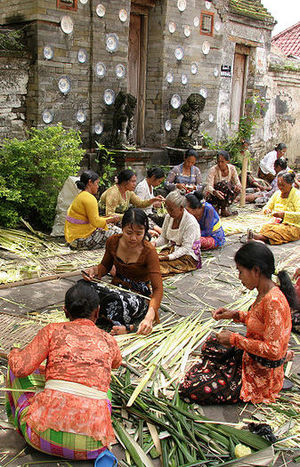Modernity is often associated with the fracture of conventional modes of belonging, whether to tradition, place, family or religion.
 Yet, the mechanisms of fracture – global flows of ideas, people and goods through communication, commercial, and political networks – have also created new connections. More than simply fracture modernity has also generated new forms of interdependence.
Yet, the mechanisms of fracture – global flows of ideas, people and goods through communication, commercial, and political networks – have also created new connections. More than simply fracture modernity has also generated new forms of interdependence.
The Authority, Community and Identity Working Groups analyze the multiple forms of belonging that have emerged within the contexts of contending modernities. What happens when the values and loyalties of various ‘communities’ clash? What guides the individual in choosing one set of values over another? And how do the different ‘communities’ exercise authority, which involves persuading even compelling individual compliance?
To these kinds of questions, it is possible to answer from a normative, theoretical perspective, as well as through a social-anthropological inquiry of cultural practices. The Authority, Community and Identity Working Groups combine these lenses by focusing on two significant sites of global flows: sub-Saharan Africa and Indonesia.
The Africa Working Group led by Emmanuel Katongole analyzes the many tribes, ethnicities, religions and political affiliations that co-imbricate within the same individual or community. In diverse African contexts, it is often possible for one individual to belong to a Church and, at the same time, preserve some tribal practices of the past. Interreligious marriages also challenge the clear-cut boundaries set between traditions by classical norms. With projects in Cameroon, Cote d’Ivoire, Ghana and Nigeria (and more), the Africa Working Group analyzes the complex challenges presented by issues of gender, family, land, religion, and tradition.
The Indonesia Working Group led by Mun’im Sirry will document, explore, and analyze the complex relationship between various contending authorities that have and will have shaped the religious life at both micro (family) and macro (community) levels. Once widely known in the media and scholarly discussion as tolerant and moderate, Islam in Indonesia is currently undergoing a dramatic change. This research project thus asks the questions: What makes pluralist coexistence possible in certain Indonesian contexts or families, and not in others?
